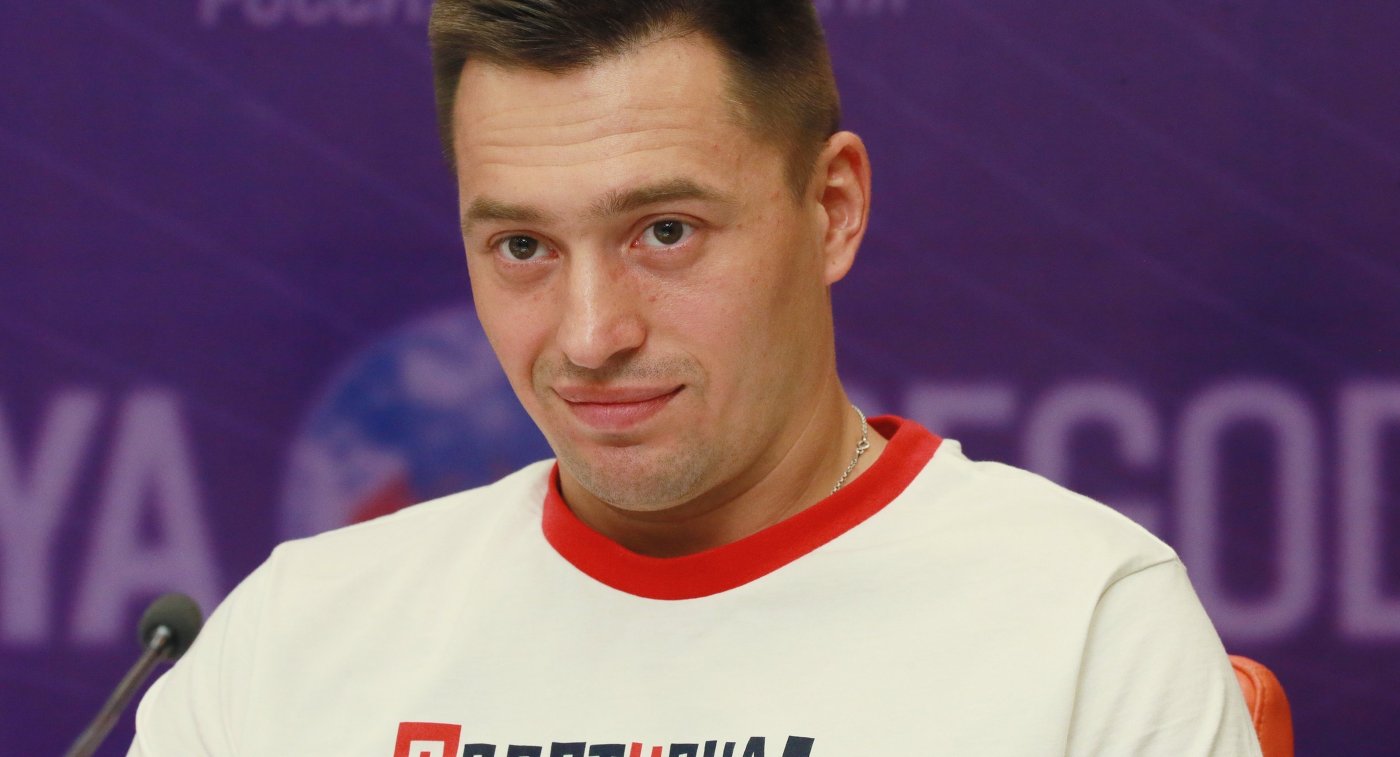Anton Golotsutskov recently talked to R-Sport about his career and his thoughts on the current state of gymnastics in Russia.
Q: Anton, how did you start doing gymnastics?
A: During my childhood, prospective children were selected in kindergartens. The coach came to the children’s and he chose those who seemed suitable. That’s how I was selected. In my opinion, this approach is much better and easier than the current one, when children choose to come to the gym and then they undergo a kind of natural selection.
Q: Who did you want to be as a child?
A: I had a carefree childhood and I did not dream about having a certain profession. I was doing gymnastics, it was my hobby. I only realized it was serious when I was a high school senior.
Q: What difficulties you encountered progressing in your gymnastics career?
A: Teenage years were the most difficult for me when I wanted to hang out with girls more than spend time working out at the gym. I’m grateful to my personal trainer Leonid Yurievich Abramov and to my parents, who did not let me quit the sport. Without these people, I wouldn’t have achieved anything.
Q: Who are your sports role models?
A: Mike Tyson and Roy Jones Jr are the best athletes in history. Why boxers? Because you are not allowed to relax in boxing.
Q: When browsing your Instagram photos we noticed that you like hockey. Why?
A: Hockey is a masculine sport. People justly say that cowards don’t play hockey. I myself would love to play but I don’t have time.
Q: What do you think is the current level of gymnastics in Russia?
A: Gymnastics, fortunately, is gradually gaining momentum. Thanks to the president of the Federation of Artistic Gymnastics of Russia, Vasily Titov, who does everything possible for this.
Nevertheless, we can strive for more. In my opinion, the strongest gymnastics right now is in the US, where, besides modern equipment, there is a clear training system. But I hope that in the next ten years we will reach their level and, perhaps, even surpass them.
Q: Who, in your opinion, can be considered the hope of Russian gymnastics today?
A: As for the future of gymnastics, it is difficult to name names, because you never know with this sport – one day you’re on top, the next day you’re not. We have good athletes, David Belyavsky and Nikita Nagornyy. Our young gymnasts are quite strong.
Q: Which of the victories was the most difficult for you?
A: In 2007, we were competing the Worlds in Stuttgart that served as an Olympic qualification. The fate of our team was being decided. Three of us got injured in the first rotation. I had to compete on several apparatuses with a broken leg. I did it, and our team got to the Olympics. But it was very painful.
Q: How to attract more children to do gymnastics?
A: It is important to explain that gymnastics is not just a physical exercise. Gymnastic skills can be used not just for winning the Olympic gold, but also in real life. For example, if an angry dog breaks off the chain, the young athlete will be able to climb a fence to save themselves or if there’s a fire they can easily climb down the drainpipe to escape the building.
Q: Which gymnastics school is currently the strongest in Russia?
A: Of course, CSKA Moscow (laughs).
Q: What does the athlete think about when entering the competition floor at the Olympics?
A: Lots of thoughts. For example, when I performed on floor in the Olympic final, already near the end of the routine, I caught myself thinking that I was singing a song the Little Mammoth song.*
*[a song from a famous Russian cartoon Mother for the Little Mammoth. You can watch the cartoon with English subtitles here – the song starts at 3.03].
Q: Continue the phrase: “If I weren’t doing gymnastics, I’d be a…”
A: A lawyer (laughs). My wife is a lawyer and I really like how she talks. Lawyers have an interesting way of thinking.
Q: What do you like to do in your spare time?
A: Extreme sports: snorkeling, mountain skiing, bungee jumping. After retiring from gymnastics, I am constantly looking for ways to release adrenaline.
Q: Have you ever been really scared?
A: I was scared recently when I bungee-jumped from a height of 207 meters. I never thought I’d be afraid of heights, but when I stepped on the cliff edge, I realized that I was afraid. But I already told my subscribers in Instagram that day before that I would make a jump, so I couldn’t let them down.
Q: What is most important for you in life? Where do you find sanity?
A: In my family, in my son. The family is the highest value in life. I’m not always able to spend a lot of time with my family, so when I see them, it becomes I feel easy and peaceful. My family and my house are my fortress.
Q: Have there been any turning points in your life?
A: When I retired from gymnastics, I was alone, without any supervision, I felt like a baby, abandoned in a big city. I had to learn to live anew. My wife was very supportive then. If it weren’t for her, I do not know how I would have survived this time.
Q: What feature of your character do you consider to be the strongest?
A: I’m straightforward. I hate when people lie, and I myself try to never do it.
Q: What is your credo?
A: Only forward!



